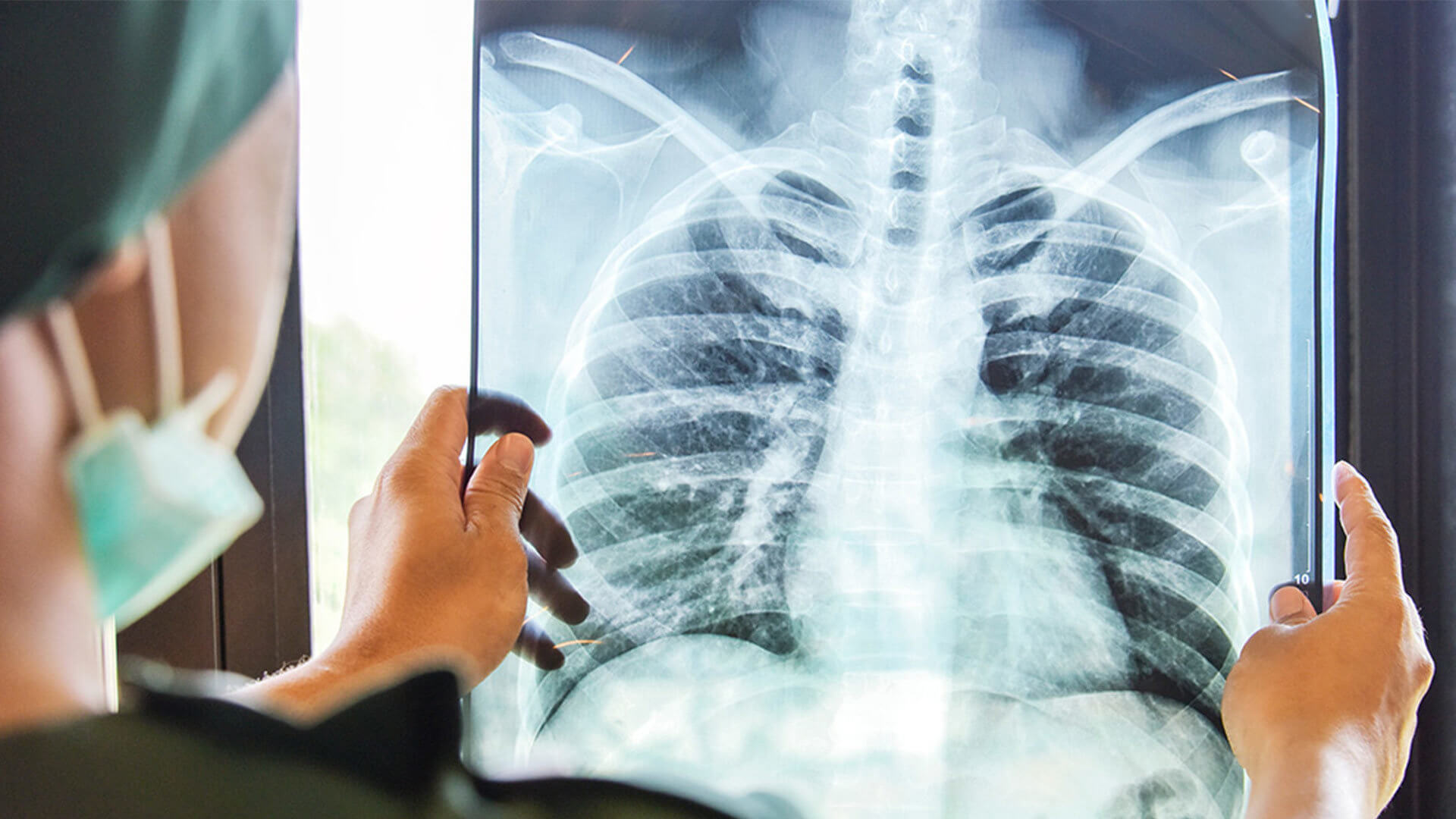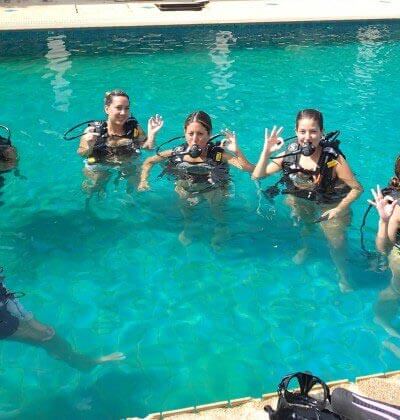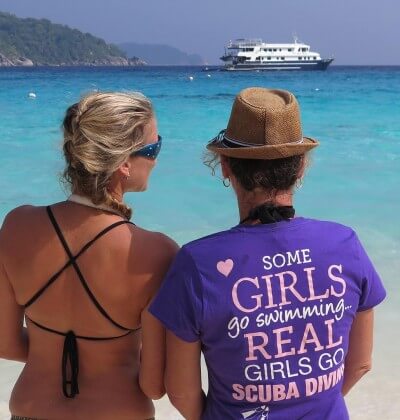Medical Fitness for Scuba Diving
For all of those that have started a PADI scuba diving course you will be familiar with Medical Fitness for Scuba Diving form. For those about to start a course it will generally be the first piece of paperwork you see.
The purpose of establishing fitness to dive is to reduce risk of a range of diving related medical conditions associated with known or suspected pre-existing conditions. This has no reference to their diving skills.
Scuba diving does involve some risk and pre-sexisting medical conditions can make the risk of a fatality while diving much higher. As a result, the regulations, requirements and medical standards relating to diving are quite strict in order to make scuba diving a safer activity.
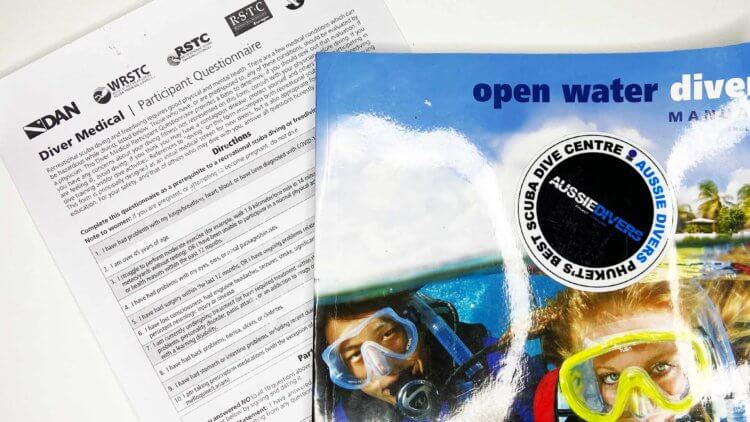
New Padi Medical Questionnaire Open Water
Medical Statement
The World Recreational Scuba Training Council (WRSTC) and on a national level the Recreational Scuba Training Council (RSTC) create minimum recreational diving training standards for the various scuba diving certification agencies across the world. A part of these standards are scuba diving medical requirements.
In 2020 after the start of COVID pandemic and in conjunction with the Divers Alert Network and Undersea and Hyperbaric Medical Society new medical recommendations were made. The new medical form was more streamlined and gave the diver a bit more freedom self analyze their fitness for diving.
Over the years as scuba diving grew in popularity, more research has been conducted. We now understand more about illnesses and scuba diving and in turn more divers than ever can dive. This is in part thanks to the non-profit organization Divers Alert Network who are considered one of the world authorities on medical and safety issues in scuba diving.
Importance of being Medically Fit to Scuba Dive
Given the nature of scuba diving, depth in water and remote locations, underwater accidents can be very unforgiving. Whereas a mild asthma attack on the surface may come and pass, the same underwater would most likely end in a fatality.
Often new divers do not fully understand the dangers and implications of scuba diving. The effects that dry air, excess nitrogen and underwater pressure can have on the body. It is therefore very important that if there is any doubt that a new diver does have a medical examination prior to diving.

Divers Alert Network Scuba Diving Safety
Who are Divers Alert Network?
Divers Alert Network (DAN) is a group of not-for-profit organizations founded in 1980 and dedicated to improving diving safety for all divers. DAN has expanded globally and now has independent regional organizations in USA, Europe, Japan, Asia Pacific and Southern Africa.
They have evolved from a telephonic service in the USA during the 1980’s to providing, scuba diving insurance, scuba diving medical hotlines, emergency medical advice and assistance for underwater diving injuries, promoting diving safety, underwater diving research and education and providing information on issues of common concern to the diving public across the world.
Making Use of the Divers Alert Network website
The Divers Alert Network website is regarded as the best scuba diving medical advice website in the world. It is the “go to” website for scuba diving professionals when making enquiries.
Although, not a replacement for an actual medical examination, the website does supply some of the world’s best advice to diseases and medical conditions that a diver may have that could cause issues whilst scuba diving. Some of topics include asthma, diabetes, anxiety, hypertension, motion sickness, equalization, cardio vascular fitness, PFO, pacemakers and many more.
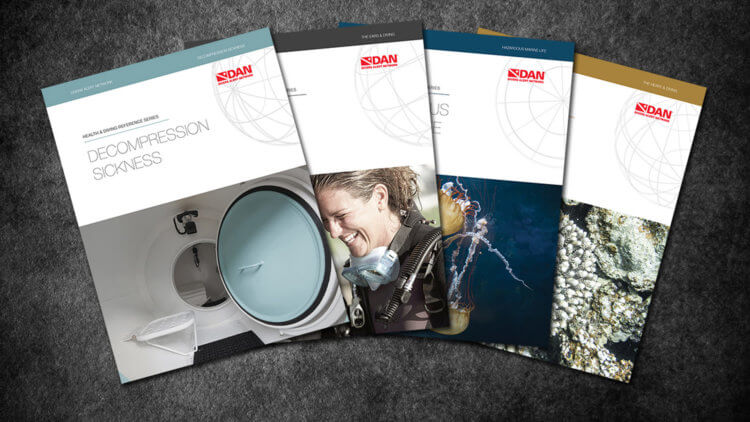
Divers Alert Network Scuba Diving Medical Reference
DAN Medical Reference Books and Guideline
The also produce some excellent free medical reference books on Decompression Sickness, Ears and Diving, Hazardous marine Life and The Heart and Diving. They have also released some very informative guidelines include topics Diabetes and recreational Scuba Diving, Flying After Scuba Diving, Patent Foramen Ovale and Fitness and Medical Examination of Fatalities.
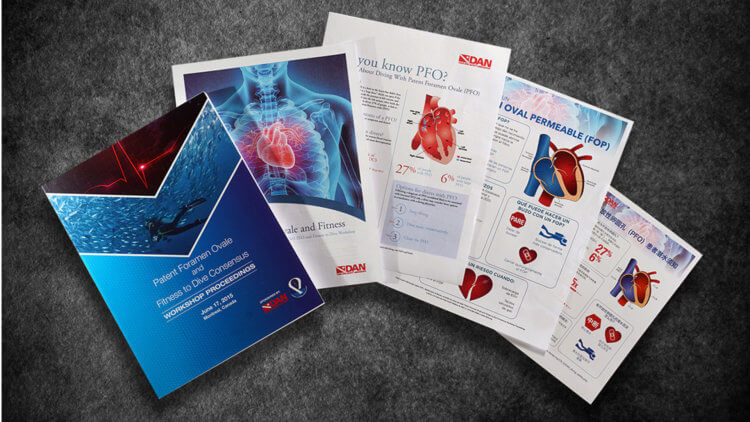
Divers Alert Network Scuba Diving Health Safety
Conclusion
Having a medical condition does not automatically preclude the diver from scuba diving. Some divers will need to understand the risks prior to diving, some will have to take precautions and some unfortunately the risk will be too high.
The Divers Alert Network does an excellent job in understanding the risks of various medical illnesses however at the end of the day, if you are in any doubt, approval from a scuba diving medical expert is recommended and in some cases mandatory.
Posted in Diving Health on .

